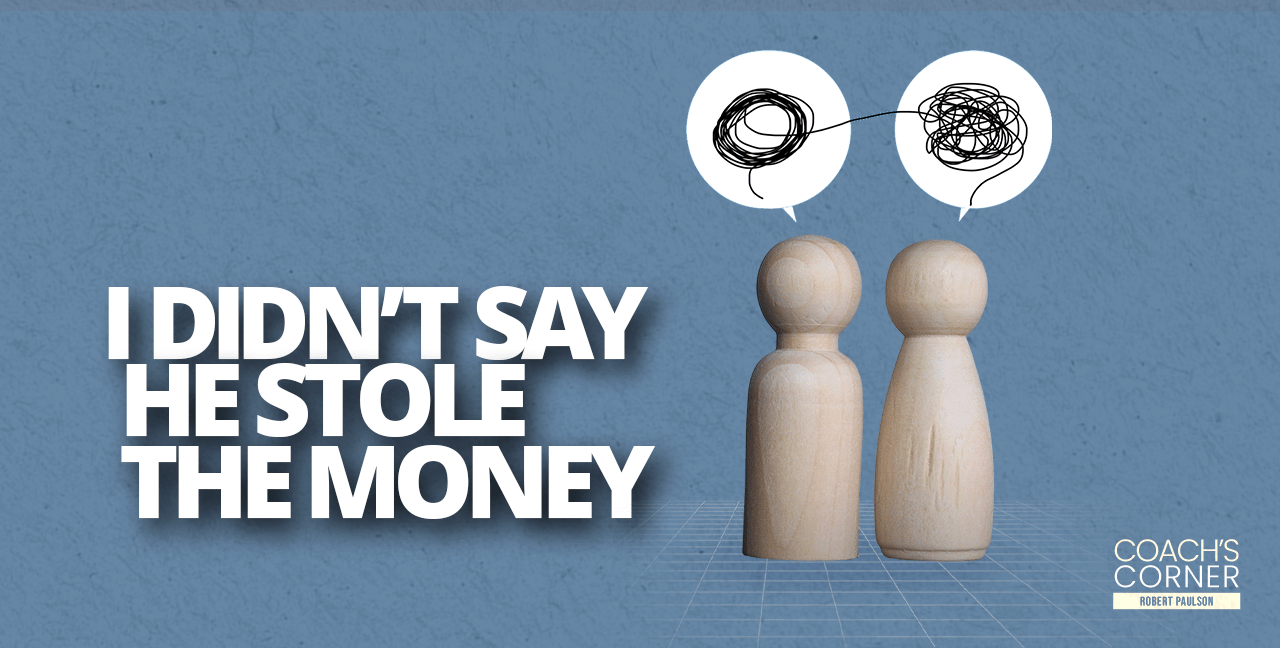
"The art of communication is the language of leadership" – James Humes
I was a twenty-year-old stockbroker when I first heard the phrase, I didn’t say he stole the money, and I remember it like it were yesterday.
In a large group sales meeting, my manager asked me how many ways the phrase could be said. I was confused and felt like I was being set up. I was and I responded with what I thought was the obvious answer, one. He smiled and asked me to count the different ways he would say the phrase. I counted to seven and he smiled and nodded yes. Each time he said the phrase he stressed a different word. He then asked how many different meanings there were. I was getting it and replied, seven. He nodded again and said yes, one sentence, seven different ways to say it, and seven different meanings. It was at that moment I learned one of the most powerful lessons in communication. It’s not “what” you say that gives meaning. It’s “how” you say it that does.
Let's have some fun and click on the video link below.
Fast forward thirty years later, (ouch, that hurts to say), and I am spending time with senior leaders of private and public companies, listening to the problems and challenges leaders face. I am learning that most of the problems leaders face arise because of poor communication, a lack of understanding one another. Sometimes leaders are good at communicating the “what” and fall short of the “why”. Some leaders communicate too much, too little, or simply forget to provide the benefits to others when persuading them to take action. Being aware and knowing what to say is important. But knowing “how” to say it, is the difference that makes a difference.

Most of my clients are subject matter experts. They know their crafts better than most and when it comes to something like delegating, they do it. But when it comes to delegating effectively, they may know what needs to be done and communicate it out, but unless they communicate it in a way that works for the other person, they take the risk of something not being completed successfully.
Sometimes it’s not the words that are important. What is important is how we use them, the way in which they are communicated, and the meaning we give them. The example, I didn’t say he stole the money, teaches us intonation and how the meaning of our communication changes when we stress different words. Only when we pay attention and make a conscious effort to how we are communicating, can we do it effectively.

A previous client taught me a lesson on “how” to provide constructive feedback. She is a senior leader with a large national organization and part of her role was developing future leaders. She truly wanted her people to become great leaders and believed in honest and direct feedback. When she delivered her message, she put her hand over her heart, looked the person directly in the eye, and said what she needed to say. She explained, no matter the message, the other person felt her compassion and understood the positive intent of the feedback she was providing. My client further explained, communication from the head is very different than communication from the heart. No matter the words.
Communication helps us get our point across clearly. It also helps us lead, build relationships, connect, and gain better knowledge. Maybe this is something we can all improve.
Enjoy!
Robert Paulson